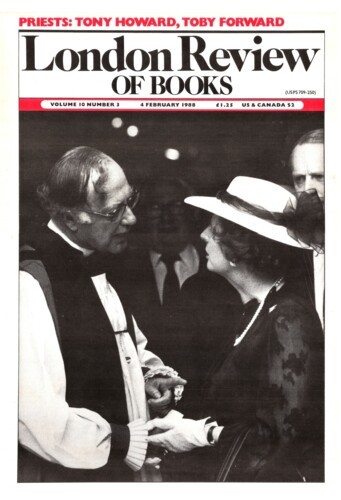Putnam’s Change of Mind
Ian Hacking, 4 May 1989
Big issues and little issues: among established working philosophers there is none more gifted at making us think anew about both than Hilary Putnam. His latest book is motivated by large considerations, most of its arguments are driven by small ones, and its topic is deliberately restricted to something middle-sized: the brain, the mind and the computer program. At the end he soars and contemplates all of metaphysics and epistemology. The book will mostly be read as Putnam’s denunciation of his former philosophical psychology, to which he gave the name ‘functionalism’. I’ll try to explain that, but first a glance at what Putnam calls, when he soars, his ‘approach/avoidance’ relation to a family of large ideas.




